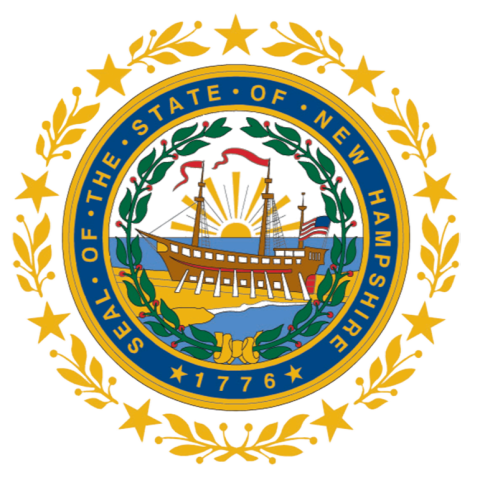Treatment and recovery for young people with substance use disorders (SUD) and Co-occurring mental health disorders and SUD (COD)
What is The Seven Challenges®?
The Seven Challenges® is designed to help youth and young adults (ages 12-25) with substance use disorders (SUD) and Co-occurring mental health disorders and SUD (COD) discover the reasons why they misuse substances, their co-occurring issues, and establish a plan for a healthier and hope-filled future. The NH Department of Health and Human Services in collaboration with the Institute on Disability at UNH is helping community-based youth-serving agencies develop the capacity to implement the program. Developed by Dr. Robert Schwebel, The Seven Challenges® is a harm reduction model designed to meet each person where they are at and help them build mastery, including greater control over their substance misuse. The Seven Challenges® is being built across the state to address the state’s drug crisis and prevent young people in New Hampshire from developing lifelong health concerns related to Sud and SUD/COD.
The Seven Challenges are:
- We decided to open up and talk honestly about ourselves and about alcohol and other drugs.
- We looked at what we liked about alcohol and other drugs, and why we were using them.
- We looked at our use of alcohol and other drugs to see if it has caused harm or could cause harm.
- We looked at our responsibility and the responsibility of others for our problems.
- We thought about where we seemed to be headed, where we wanted to go, and what we wanted to accomplish.
- We made thoughtful decisions about our lives and about our use of alcohol and other drugs.
- We followed through on our decisions about our lives and drug use. If we saw problems, we went back to earlier challenges and mastered them.
Why do we need The Seven Challenges®?
New Hampshire has some of the highest rates of substance misuse by youth and young adults in the country, including high rates of alcohol use among underage youth (ages 12-20), and high rates of illicit drug use. In 2019, NH had the second highest rate in the U.S of young adults with a substance use disorder (SUD), and many have reported needing but not receiving SUD treatment in the past year, the second highest rate of unmet need in the nation. In addition, many youths will not voluntarily seek treatment, especially if that treatment is focused on “abstinence-only.” The treatment also addresses tobacco use and vaping.
Who is The Seven Challenges® for?
Comprehensive treatment provided by The Seven Challenges® is for adolescents (ages 12-18) and transitional aged youth (ages 16-25) with substance use disorders (SUD) and/or co-occurring substance use and mental disorders (COD). Many sites also offer a group for their families/primary caregivers.

Is The Seven Challenges® effective?
The Seven Challenges® is rated by the California Clearinghouse as having promising research evidence. This rating means that at least one study comparing youth who received the intervention with a group that did not find the Seven Challenges to be effective in reducing drug or alcohol use. To learn more, visit The Seven Challenges website.
Each site that provides The Seven Challenges® also uses a research-based screening and diagnostic tool that allows the practitioner to decide which type of treatment will be best for the individual. Further, each site may link youth to peer recovery support.
Who provides The Seven Challenges®?
Statewide
Foundations Counseling New Hampshire This is a DCYF Master Licensed Alcohol and Drug Counselor (MLADC) Program
Email Amy Kelly and Alyssa Wyman
(603) 851-1879
- Concord
- Riverbend Community Mental Health CenterEmail Melissa Colby
(844) 524-6673
- Riverbend Community Mental Health CenterEmail Melissa Colby
- Derry
- Center for Life Management Email Sandy Norton
(603) 965-0689
- Center for Life Management Email Sandy Norton
- Dover
- Community Partners (603) 516-9300
- Exeter
- Seacoast Mental Health Contact Admissions Staff: (603) 431-6703
- Franklin
- Archways Email Michelle Lennon and Hillary Stark
(603) 702-2461
- Archways Email Michelle Lennon and Hillary Stark
- Manchester
- The Mental Health Center of Greater Manchester Contact Jeanna Still: (603) 668-4111 x6436
- Nashua
- Greater Nashua Mental Health (603) 889-6147
- Harbor Care: Email Christina Loder(603) 475-4808
- Plymouth
- ArchwaysEmail Michelle Lennon and Hillary Stark
(603) 702-2461
- ArchwaysEmail Michelle Lennon and Hillary Stark
- Portsmouth
- Seacoast Mental Health Contact Admissions Staff: (603) 431-6703
- Seacoast Mental Health Contact Admissions Staff: (603) 431-6703
- Salem
- Center for Life Management (603) 434-1577
- Strafford County
- Community Partners (603) 516-9300
- Tilton
- Archways Email Michelle Lennon and Hillary Stark
(603) 702-2461
- Archways Email Michelle Lennon and Hillary Stark
What can I expect if I receive The Seven Challenges®?
If you are identified as eligible for and agree to participate, you will be matched to a trained clinician who will give you an orientation to the treatment process. You will then work through The Seven Challenges® journals with guidance and responses from your provider. The journals require you to write and think about your decisions about your life and your use of alcohol and other drugs. The journals also help you to think about where you want to be in the future. The treatment also includes counseling provided in individual or in group sessions. The counselor uses the program to guide you to identify and work on the issues most relevant to you. In sessions, as you discuss the issues that matter most, counselors will relate back to The Seven Challenges® as part of the conversation.
The Seven Challenges® treatment is typically 6-8 months, but treatment is customized to the individual’s needs.
To learn more visit The Seven Challenges.

What is provided for recovery support as part of The Seven Challenges® ?
Many young people struggle to maintain recovery while navigating the stressors of adolescence and emerging adulthood. Alternative Peer Groups (APGs) are community-based, family-centered, and professionally-staffed positive peer support programs that offer pro-social, fun, substance-free activities. APGs will help you connect to a community of young people where you will focus on healthy lifestyle changes in a safe environment with other young people who are in recovery or seeking to focus on wellness. The groups are held weekly and led by a young person who is in recovery, as well as a clinician who is there to provide additional support, if needed. APG facilitators have been trained in the Substance Abuse and Mental Health Services Administration’s (SAMSHA) peer recovery competencies, and they are part of an APG Learning Community that supports the growth of their skills and knowledge.
How can I find out more about training and technical assistance in The Seven Challenges® and Alternative Peer Groups models?
The Seven Challenges and Alternative Peer Groups are part of an effort led by the NH Department of Health and Human Services and the Institute on Disability at the University of New Hampshire. This effort is a continuum of care called Creating Connections NH. To learn more about this framework and access information about training, visit the Creating Connections NH website at UNH.
To find substance misuse treatment and more information about treatment providers in New Hampshire, visit:
NH Doorway portal
Connect with your NH Community Mental Health Center
or
Visit the NH Drug and Alcohol Treatment Locator
There is a network of organizations in New Hampshire that are led and staffed by people who are in recovery. These organizations offer peer recovery coaching, telephone support, and mutual aid groups. Learn more about these Recovery Supports here. Additional resources:
- The Greater Nashua Mental Health Center offers an Intensive Outpatient Treatment program providing “whole person” treatment and support, including group and individual therapy, family support and treatment, and case management to teens with substance use disorder. Call (603) 889-6147
- Seacoast Youth Services provides comprehensive substance use treatment services for youth and young adults in the seacoast area.
- Live Free Recovery provides substance use treatment and recovery support for youth and young adults in the southeast region of New Hampshire.
- Archways provides substance use treatment and recovery support for youth and young adults in Merrimack County and the Plymouth area.
- NH Providers Association offers information about treatment and recovery providers across the state.
- NAMI NH provides information about substance use services and resources in New Hampshire.
Learn more:
- California Clearinghouse effectiveness rating: The Seven Challenges
Korchmaros, J. D., & Stevens, S. J. (2014). Examination of the role of therapeutic alliance, treatment dose, and treatment completion in the effectiveness of The Seven Challenges. Child and Adolescent Social Work Journal, 31(1), 1–24. https://doi.org/10.1007/s10560-013-0307-3
Korchmaros, J. D. (2018). Examining the effectiveness of The Seven Challenges® comprehensive counseling program with adolescents. Journal of Social Work Practice in the Addictions, 18(4), 411–431. https://doi.org/10.1080/1533256X.2018.1518651
Taylor, L. R. (2016). General responsivity adherence in juvenile drug treatment court: Examining the impact on substance-use outcome. Journal of Drug Issues, 46(1), 24–40. https://doi.org/10.1177/0022042615610618


